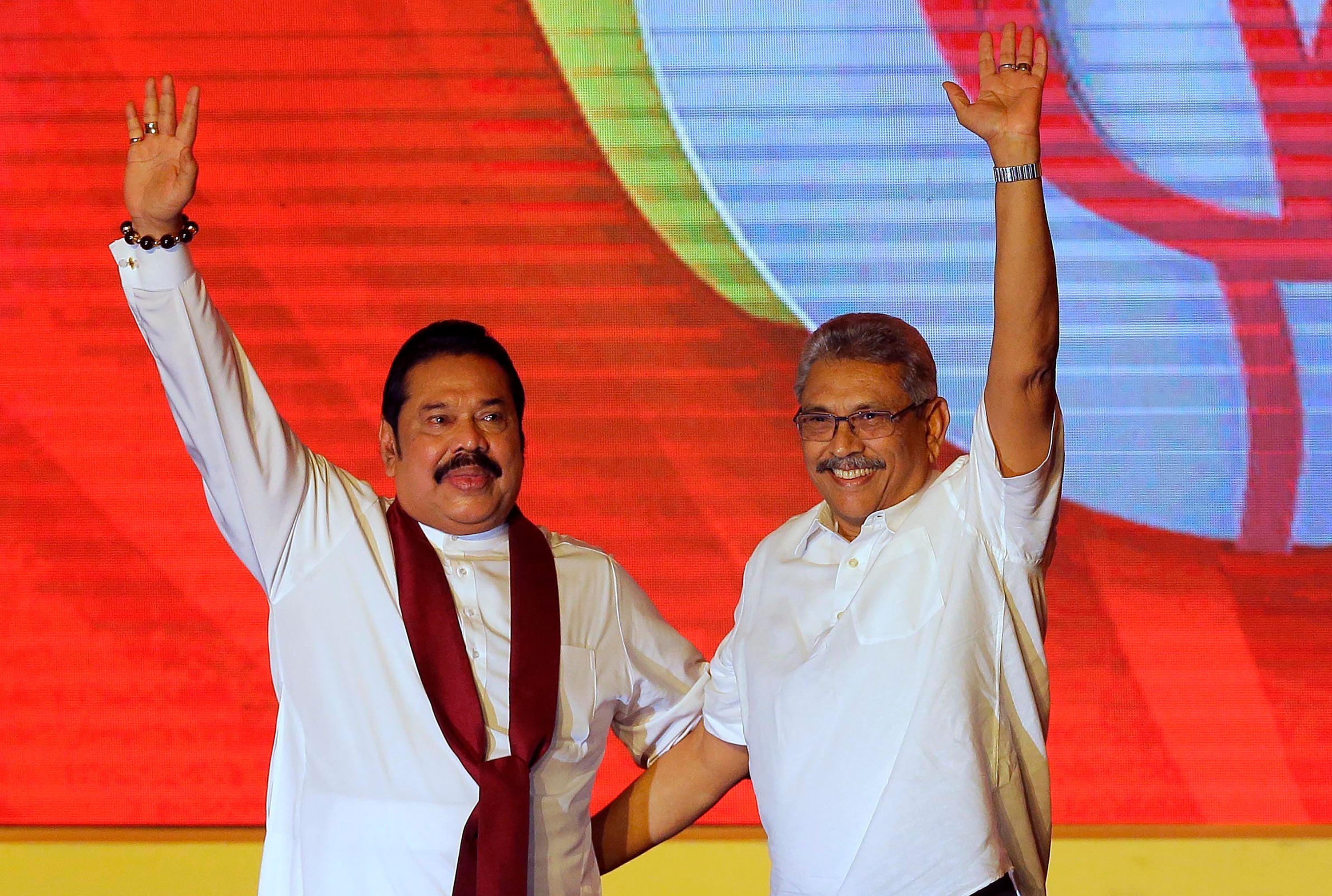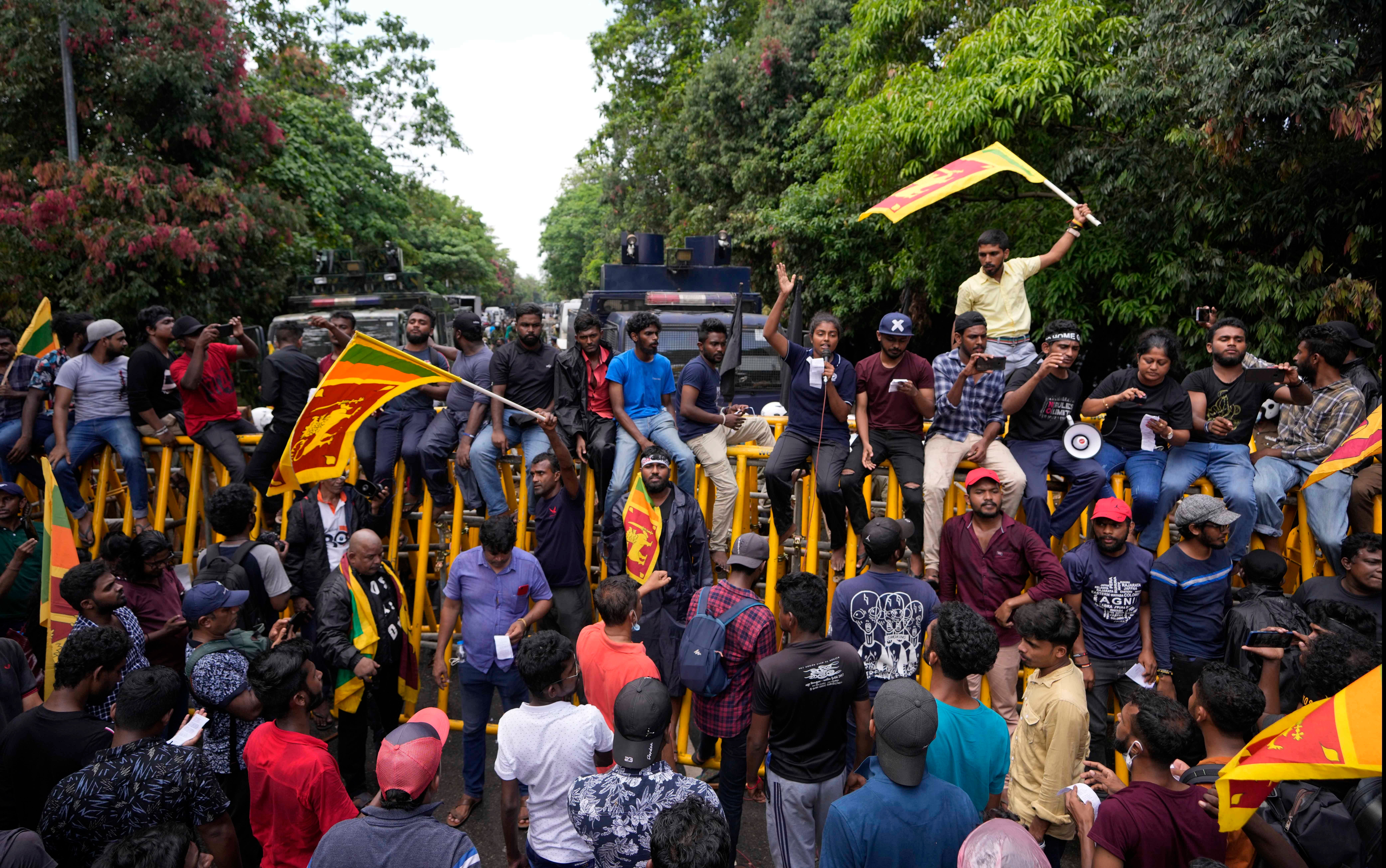Sri Lanka’s prime minister Mahinda Rajapaksa resigns over economic and political turmoil
Country rocked by widespread protests for months as Sri Lankans endure shortage of essential items

Your support helps us to tell the story
From reproductive rights to climate change to Big Tech, The Independent is on the ground when the story is developing. Whether it's investigating the financials of Elon Musk's pro-Trump PAC or producing our latest documentary, 'The A Word', which shines a light on the American women fighting for reproductive rights, we know how important it is to parse out the facts from the messaging.
At such a critical moment in US history, we need reporters on the ground. Your donation allows us to keep sending journalists to speak to both sides of the story.
The Independent is trusted by Americans across the entire political spectrum. And unlike many other quality news outlets, we choose not to lock Americans out of our reporting and analysis with paywalls. We believe quality journalism should be available to everyone, paid for by those who can afford it.
Your support makes all the difference.Sri Lanka’s prime minister Mahinda Rajapaksa has offered his resignation during widespread protests in the country as it suffers its worst economic and political crisis since independence.
“The prime minister has sent his letter of resignation to the president,” an official who declined to be named told Reuters on Monday.
The move comes days after President Gotbaya Rajapaksa, the prime minister’s younger brother, requested the PM to step down as a solution to the ongoing political crisis in the country in a special meeting.
President Rajapaksa is also expected to invite political parties now in parliament to form an all-party cabinet.
The resignation of the prime minister comes during large protests in Sri Lanka that have been ongoing for the past month. Supporters of the government clashed on Monday with anti-government protesters outside Mahinda Rajapaksa’s office.
Local reports said hundreds of troops have been deployed and an indefinite curfew imposed in Colombo after the clash between the two factions.
Police also used teargas and water cannons to disperse protestors from both sides.
Supporters of the prime minister rallied outside his office after reports said that he might step down.
“Whose power? Mahinda’s power!” government supporters shouted as the compound gates swung open to allow them inside.
The supporters attacked the anti-government protestors – who have been demonstrating since 9 April – with clubs, demolishing and later burning down their tents.
Police said that at least 20 people were injured in the attack.

Thousands of supporters of the prime minister were bussed in from all over the country to converge at his official residence.
The PM also addressed the group before resigning, saying he would do what was best for the public interest.
The attack on protestors came a day after Mr Rajapaksa was heckled during his first public outing since nationwide protests erupted. He was visiting one of the holiest Buddhist temples, housing a tree said to be 2,300 years old, in Anuradhapura, the capital city of North Central province.
For several months, Sri Lankans have endured long lines to buy fuel, cooking gas, food and medicine, most of which come from abroad.
Shortages of hard currency have also hindered imports of raw materials for manufacturing and worsened inflation, which surged to 18.7 per cent in March.
The island nation off southern India was due to pay $7bn (£5.7bn) of its foreign debt this year out of nearly $25bn it must pay by 2026. Its total foreign debt is $51bn.
Sri Lanka’s finance minister announced earlier this week that the country’s usable foreign reserves have plummeted below $50m.
Meanwhile, on Monday, the trade unions began a “Week of Protests” demanding that the president step down. Trade union activist Saman Rathnapriya told the media that more than 1,000 unions representing health, ports, education and other key service sectors had joined the movement.
During the week, he said, workers will stage demonstrations at their places of employment across the country. The action will culminate in a huge march to parliament, demanding President Rajapaksa’s removal and a new government.
Join our commenting forum
Join thought-provoking conversations, follow other Independent readers and see their replies
Comments